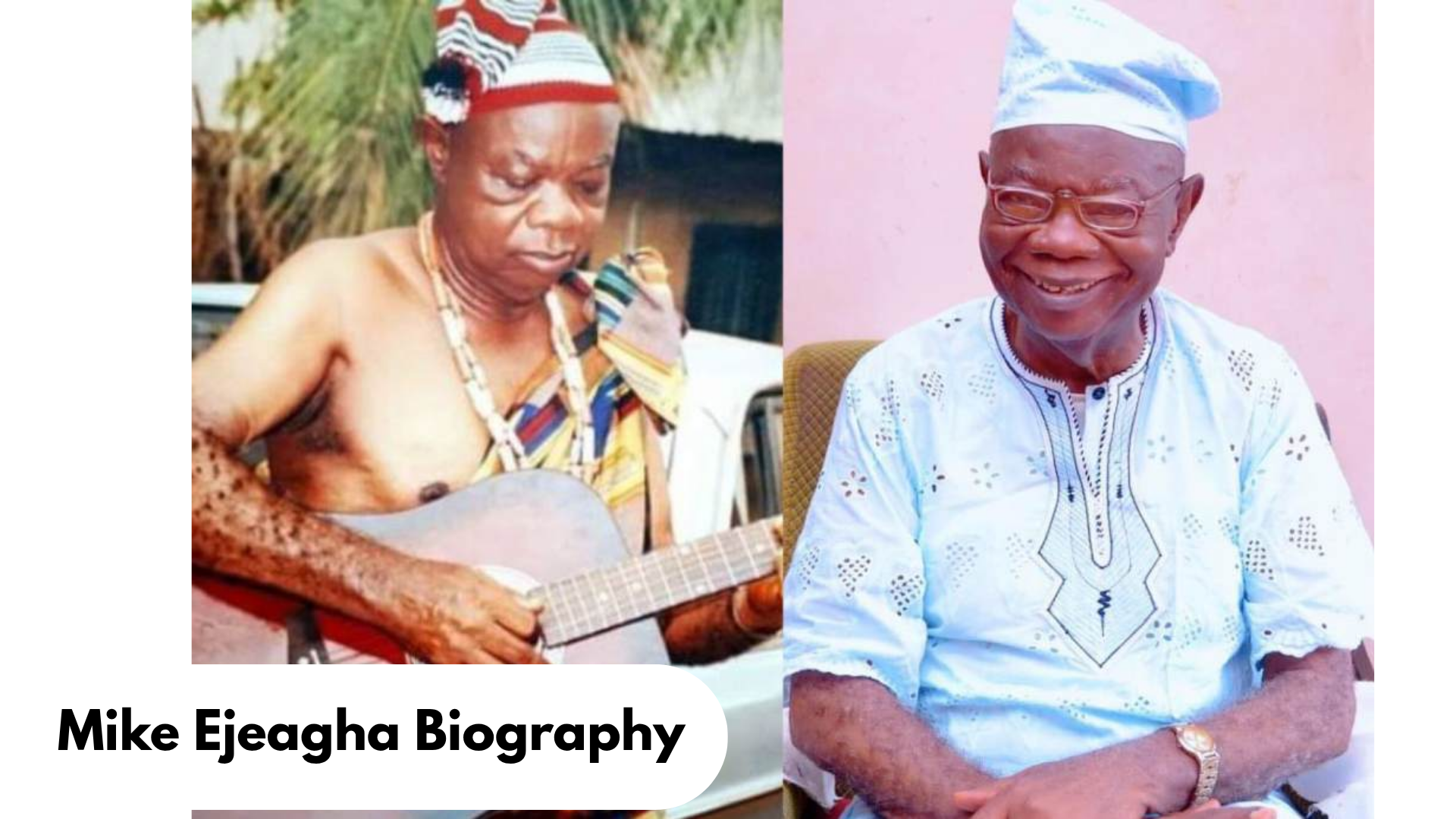Early Life and Background
Michael Ejeagha, popularly known as Mike Ejeagha, was born in August 1932 in Enugu State, Nigeria. Raised in a culturally vibrant Igbo environment, his early exposure to traditional tales and music greatly influenced his creative journey.
He attended Government School Enugu and later moved on to technical education. However, music was his calling. His passion led him to the broadcasting world, where he began gaining popularity through radio programs in the 1950s.
Career Beginnings and Breakthrough
Mike Ejeagha’s professional music career began in the early 1960s. His style was rooted in highlife, a genre that originated in Ghana but found resonance across Nigeria. Unlike many of his contemporaries, Ejeagha’s music focused heavily on traditional Igbo proverbs, parables, and moral storytelling.
- “Uwa Bu Aja”
- “Akuko N’egwu”
- “Omekagu”
These songs were not just entertainment; they were moral compasses that taught values like honesty, humility, and the consequences of greed.
Musical Style and Philosophical Themes
Ejeagha’s songs are characterized by:
- Use of Igbo language for authenticity.
- Deep-rooted proverbs and moral lessons.
- Smooth, mellow guitar riffs.
- A blend of spoken word and melodic choruses.
Contributions to Igbo Culture and Language
One of Mike Ejeagha’s most impactful contributions is his preservation of the Igbo language and oral traditions. His music became a cultural archive — a bridge between generations.
He also led a government-sponsored project in the 1980s and 1990s, collecting over 300 Igbo folk stories. These recordings are now archived by the University of Nigeria, Nsukka, and remain an important resource for researchers and cultural historians.
Discography Highlights
- Akuko Na Egwu Vol. 1 – 5
- Omekagu
- Ndi Nkem
- Ka Anyi Gba Egwu
- Uche Bu Azu
Awards and Recognition
- National honors for his contributions to arts and culture.
- Lifetime Achievement Awards from various cultural institutions.
- Honorary Professorship from music associations.
Influence on Modern Music and Artists
Many modern Igbo highlife and Afrobeat musicians cite Mike Ejeagha as a major influence. Artists such as Flavour N’abania, Chinedu Nwadike, and Phyno draw inspiration from his storytelling style and indigenous authenticity.
Legacy and Current Life
Though now retired from active performance due to age, Mike Ejeagha remains an icon. His legacy is preserved through:
- Radio and television features
- Music archives
- Academic studies on his works
- Digital music platforms hosting his classics
FAQs About Mike Ejeagha
Q1: What is Mike Ejeagha known for?
Mike Ejeagha is known for his Igbo highlife music and storytelling style that blends folktales with moral lessons.
Q2: What language does Mike Ejeagha sing in?
He primarily sings in Igbo, with occasional use of English for context.
Q3: Is Mike Ejeagha still alive?
Yes, as of 2025, Mike Ejeagha is alive and resides in Enugu State, Nigeria.
Q4: Where can I listen to Mike Ejeagha’s songs?
His music is available on platforms like YouTube, Audiomack, Spotify, and Apple Music.
Q5: What are Mike Ejeagha’s most famous songs?
Some of his famous songs include “Uwa Bu Aja”, “Omekagu”, and “Akuko N’egwu”.
Conclusion
Mike Ejeagha is more than a musician — he is a cultural icon, philosopher, and historian. Through his music, he preserved the soul of Igbo tradition and educated generations with wit, wisdom, and rhythm. As the world rapidly modernizes, his legacy remains a grounding reminder of the beauty and power of indigenous storytelling.





